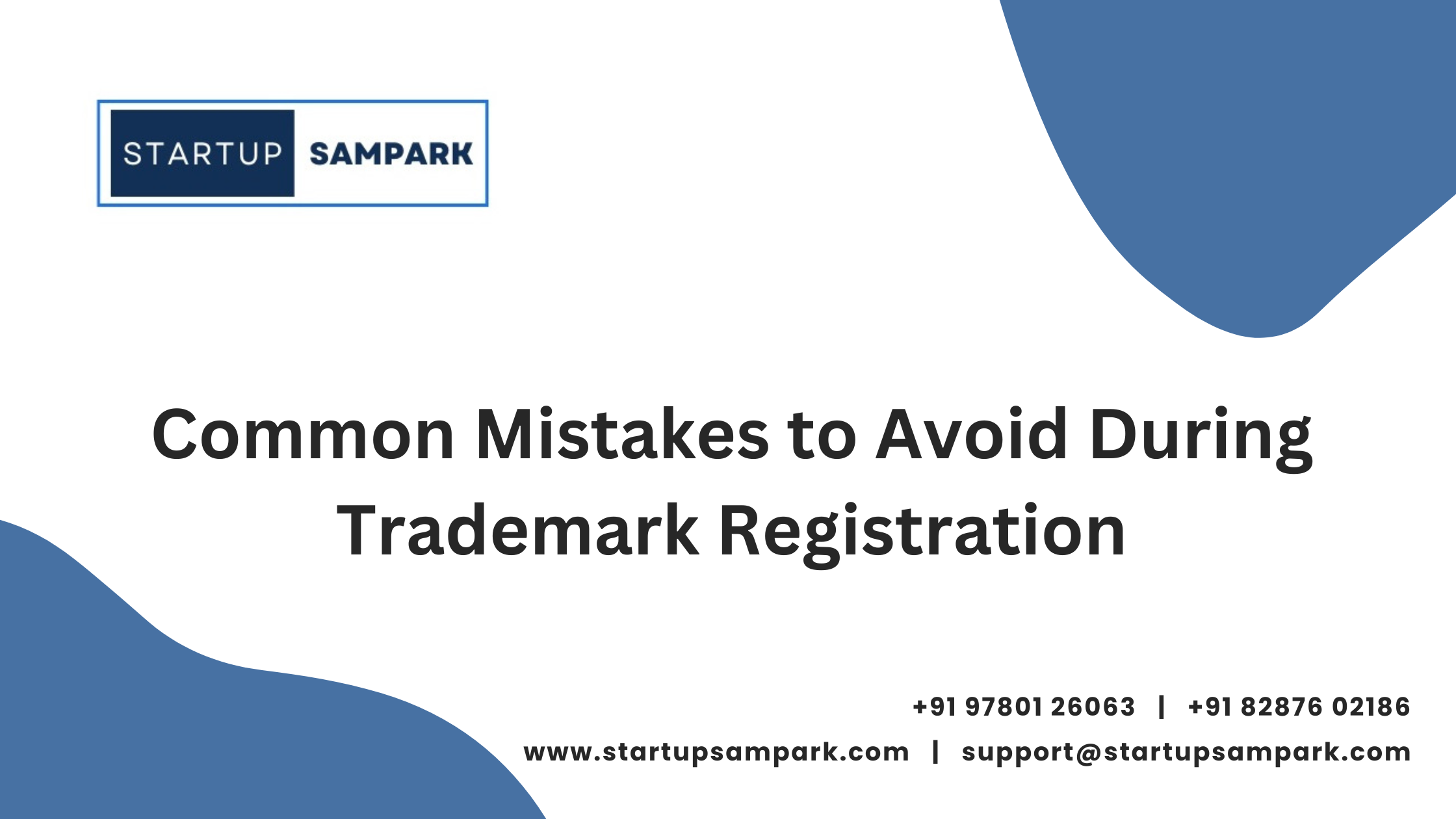Common Mistakes to Avoid During Trademark Registration
1. Failing to Conduct a Comprehensive Trademark Search
One of the most common mistakes startups make is not conducting a thorough trademark search before applying. This step is crucial to ensure that your desired trademark does not conflict with existing trademarks. A lack of due diligence can lead to potential legal disputes and rejection of your application, wasting both time and resources.
2. Choosing the Wrong Class of Goods or Services
Another frequent error is selecting the incorrect class under which to register the trademark. The Indian Trademark Registry categorizes trademarks into 45 different classes, each representing specific goods or services. Misclassifying your trademark can result in a lack of protection in the intended market, ultimately hindering your business’s ability to enforce its rights.
-
 Trademark Registration₹7,450.00
Trademark Registration₹7,450.00
3. Incomplete or Inaccurate Application Details
Filling out the application form inaccurately or omitting essential details can lead to delays or outright rejection. It’s crucial to ensure that all information, such as the applicant’s name, address, and trademark representation, is correct and complete. Double-checking these details can save you from unnecessary complications down the line.
4. Not Understanding Trademark Use Requirements
Many businesses overlook the requirement to demonstrate actual use of the trademark in commerce. While you can file an application based on intent to use, it’s essential to understand that the trademark must be actively used within a specified time frame after registration. Failing to comply can result in cancellation or revocation of your trademark.
5. Ignoring the Opposition Period
After publication in the Trademark Journal, a four-month opposition period allows third parties to challenge your trademark. Ignoring this phase can be detrimental, as it opens the door for disputes and complications that could have been resolved earlier. Monitoring any opposition activity and being prepared to address concerns is vital for maintaining your trademark rights.
6. Neglecting Ongoing Trademark Maintenance
Once your trademark is registered, the work isn’t over. Many startups fail to renew their trademarks, which can lead to loss of protection. Trademarks need to be renewed every ten years, and consistent monitoring for infringement is essential to enforce your rights. Neglecting these responsibilities can jeopardize your brand identity and market position.
By avoiding these common pitfalls, startups can enhance their chances of successful trademark registration and long-term brand protection.
trademark, india
-
 Trademark Registration₹7,450.00
Trademark Registration₹7,450.00















Post Comment